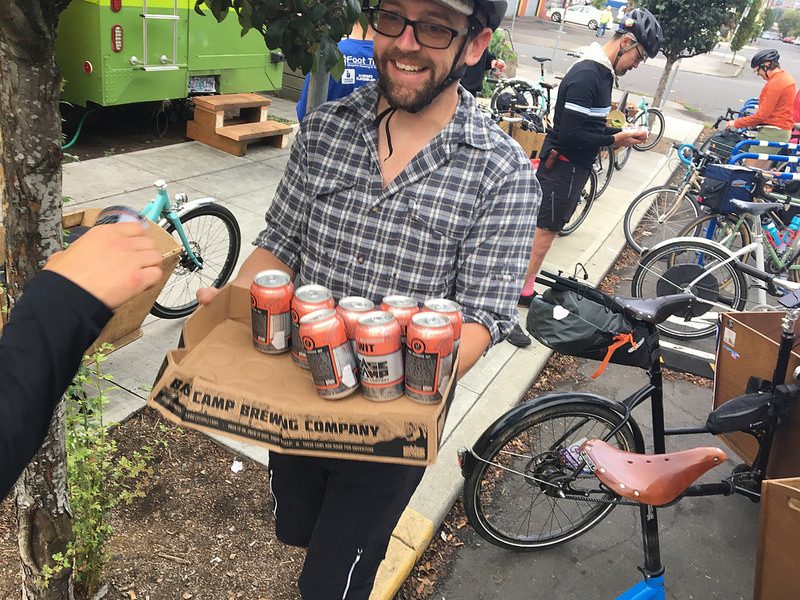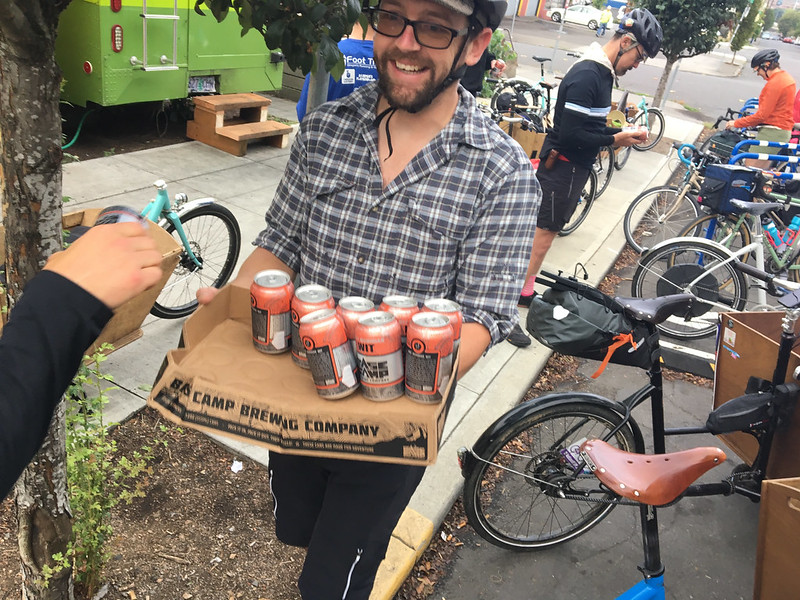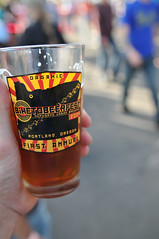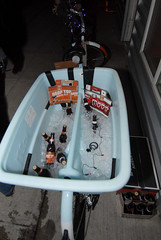“Alcohol use leads to a host of unsafe bicycling practices, increased head and brain injuries, and costs to the cyclist and community.”
— From the conclusion of a January 2010 study published in American Journal of Emergency Medicine
A story reported by the Associated Press today underscores an issue I’ve had in my story queue for a long time: bicycling under the influence.
The story was about an Oregon Court of Appeals ruling that said a citation for bicycling while intoxicated still counts toward the “three strikes” rule. The court ruled that the state could revoke the driver’s license of a man who was guilty of biking drunk in 2008, even though a driver’s license isn’t required for operating a bicycle.
Like it or not, BUI comes with the same consequences as DUI. However, unlike DUI, drunk biking has nowhere near the cultural awareness drunk driving has. As more people use bikes to get around, is it time to up our awareness and education around this issue?
Mara Woloshin, a public relations professional based in Portland is researching the topic of pedaling under the influence. Back in August, she launched a campaign to raise awareness of the issue on behalf of local lawyer (and her client) Adam Greenman, who specializes in DUII and traffic crimes. Woloshin points to what she sees as an increase in fatal bike crashes in Oregon that involve alchohol as a sign that more people need to be aware of the dangers — and the consequences — of biking under the influence.
Greenman reminds his clients (and prospective clients) that a conviction for pedaling under the influence carries the same fines and charges whether you’re operating a vehicle with or without a motor. “But it’s worse than that,” Greenman says, “because the danger of serious physical injury is much greater for a cyclist than for a driver behind the wheel.”
Woloshin’s firm sent out a press release about pedaling under the influence that specifically cited “several cycling websites packed with information, and listing dozens of cyclist-friendly watering holes where cyclists can park, drink, and swap stories.” The release went on to say:
“A drive past one of these Portland locations on a warm summer night demonstrates their incredible popularity with bike racks overflowing, and a cycling crowd that often spills onto the sidewalk. Good clean fun? Not always.”
A 2010 study published in the American Journal of Emergency Medicine backs up Woloshin and Greenman’s claims. Alcohol, bicycling, and head and brain injury: a study of impaired cyclists’ riding patterns, found that among the 200 patients studied “Alcohol use showed a strong correlation with head injury” and that, “Impaired riders were less experienced, less likely to have medical insurance, rarely wore helmets, were more likely to ride at night and in slower speed zones such as city streets, and their hospital charges were double.” Here’s the study’s conclusion:
“Alcohol use leads to a host of unsafe bicycling practices, increased head and brain injuries, and costs to the cyclist and community. The interrelated characteristics of the riding patterns of the cyclists who use alcohol might help target interventions.”
Woloshin says her interest in this topic goes beyond her PR work. “I will continue to try to build awareness about this because cycling is part of our Pacific Northwest lifestyle. I question why there is a PUI law on the books — yet most folks are not informed and don’t know about it. With bike clubs meeting at bars, law enforcement now has a rich resource for citations, fines, arrests, which generate money and can be devastating to citizens.”
According to the Portland Police Bureau Traffic Division, there have been 14 fatal bike crashes in Portland since 2005. Of those, the person on the bike was found to be under the influence of drugs or alcohol six times (and the bike operator was deemed at fault in three of those).
To say biking and drinking are closely intertwined here in Portland is a major understatement. From the Hopworks Beer Bike and beer hand-ups at local cyclocross races to beer stops on group rides and pub crawls — beer consumption is a pillar of the local bike culture. Have we gone too far? Is it time for a wake-up call on this issue? Should advocacy groups and transportation agencies do more to spread awareness about the consequences of drunk biking?
I would love to know what you think.
—
[NOTE: This article was originally published with a photo of a Team Beer jersey and a reference to them as well. Team Beer is a local bike club/team that I felt was a helpful illustration of how closely intertwined beer and bicycling has become in Portland. However, after I read comments and emails from several Team Beer members (and friends) who felt their association to this story was misleading, I decided to delete any mention of Team Beer from this article. Thanks for the feedback.]




